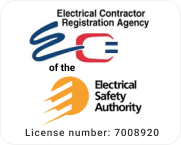How Does Charging Electric Vehicles With Solar Energy Work?
More and more people are choosing to go green when it comes to buying a vehicle. It may seem like switching to electric vehicles is easy. However, there are many aspects to be considered apart from just buying the vehicle.
Having access to a constant energy source to charge the vehicle as well as the maintenance of that energy source are also important things that need to be considered.
Most EV owners charge their electric vehicles using commercial EV chargers or home-based electric vehicle charging stations. However, there is an alternative charging source many EV owners don’t know about, which is, a solar electric vehicle charging system.
What is a solar electric vehicle charger?
A solar charging system supplies energy generated from solar power to an electric vehicle. It can be a standalone charging device sourcing the energy directly from the solar panel or an ordinary EV charger, integrated with existing solar panels, through additional equipment.
In order to convert the DC power generated within the solar panels into AC power, an inverter is needed. A standalone solar electric car charger has an integrated inverter that converts DC current produced by solar panels into AC power, sourcing the energy to the EV.
Every EV solar charging system needs to have electric vehicle supply equipment (EVSE). EVSE is a system that ensures safe charging current flow into the EV while charging as well as locking the current when the charger is not connected to the car or if the charging cable is not properly plugged in. EVSE also controls the amount of current the charger can supply and the EV can receive.
Another important part of a solar car charger is a battery storage system which stores the energy accumulated during the day and releases it once the vehicle is plugged in for charging.
Types of solar electric vehicle chargers
There are separate and integrated electric vehicle solar chargers. Separate solar chargers allow the installation of small inverter devices on already existing solar panels. This is a less expensive option for those who already have solar panels installed on their roofs. Integrated EV solar chargers are called so because they have integrated inverters that convert DC to AC power.
Are solar EV chargers worth the investment?
Generally, charging an EV with a solar charger is the most cost-efficient out of all the available methods. However, the time it takes to fully charge an EV directly depends on the number of solar panels and the amount of sunlight that the solar panels are exposed to.
It is also important to note that buying a standalone solar EV charging station and installing solar panels on the roof is an initial investment drivers need to budget for if they plan to switch to electric driving.
Switching to an electric vehicle comes with a lot of planning. Having adequate access to EV charging is important to ensure constant mobility. With the projections for renewable energy sources to grow globally, solar panels and integrated solar EV chargers will only continue to gain popularity.
A.S. Electrical is a trusted electrical services company offering electric vehicle charger installation, maintenance and repair services. We can also perform an electric vehicle power audit to assess your vehicle’s power consumption. Give us a call today if you are looking for a licensed professional to care for your electric vehicle charger.


